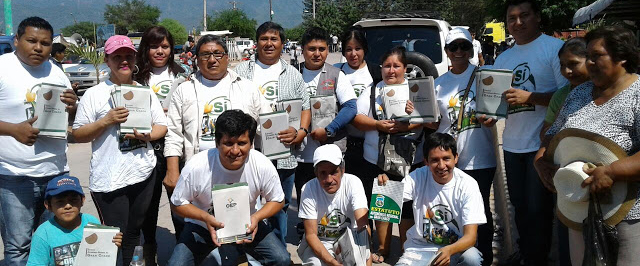Autonomy and Decentralisation Process in Bolivia: Departmental Autonomies and Regional Autonomy of Chaco

The Political Constitution of the Plurinational State of Bolivia represents a major change in the State’s territorial structure and organisation, since the implementation of the autonomous regime with its characteristics implies not only an answer to historical claims, but also a challenge to the ongoing quality improvement of the goods and services rendered through the central level of the State and the autonomous governments.
The departmental autonomies, as one of the types of autonomy in the complex territorial Bolivian structure, become an important bastion for economic growth and social justice in the country, since as set out in the legislation, their main function is to promote economic, productive and social development within their respective jurisdictions.
Furthermore, the challenges of implementing the departmental autonomies must be analysed taking into account different spheres, since one of its main challenges is to generate their own new institutional structure, moving away from the model of administrative decentralisation conceived and created in the last century.
Analysing the separation of powers in the Departmental Autonomous Governments in the light of the exercise of state functions from a subnational sphere, the role of the intergovernmental agreements and conventions in a well-coordinated exercise of powers; public investment of this subnational governments, related to the distribution of powers, all of it in the light of the transformations and progress of the departmental autonomies and, essentially, the theoretical construction of the autonomy from the change process, are central elements to the implementation of the autonomic regime.
On another note, and in a complementary manner, the Regional Autonomy of Chaco tarijeño is an innovation process in Bolivia and in Latin America, as it is constituted by the will of the citizens of a region made up of two municipalities in order to optimise the planning and management of its own development. Without dissolving nor breaking the territorial unit of the Tarija Department, in this particular case, new leaders are elected and powers are delegated to the departmental autonomy exercising normative-administrative, audit, regulatory and executive powers.
With more than 73% of the votes, the referendum and consultation held on the 20th of November 2016 adopted the Statute of Regional Autonomy of Chaco. This allows for the improvement and consolidation of this regional autonomy process. However, it must not be forgotten that Chaco’s autonomy began, both formally and constitutionally, seven years ago with the referendum and consultation regarding Access to the Regional Autonomy, the composition and election of the Regional Assembly, the transfer of royalties and the delegation of powers of the Departmental Autonomous Government of Tarija, among others.
The constitution of the first Regional Autonomous Government and the long-awaited materialisation of the legitimate demands and aspirations of Chaco tarijeño, in the progressive and phased implementation of the autonomy, has the unanimous support of its authorities.
The regional autonomy will be fully implemented after the forming and functioning of its Executive Body and the exercise of the administrative and normative powers of the Regional Assembly, under the terms laid down in the Autonomy Statutes.
This political milestone has an emphasis on its Executive Body, since the Regional Assembly only needs to adapt its Internal Regulations and initiate the normative-administrative development processes, whose instruments and scopes are described in the Statute. The composition of the Executive Body aims at carrying out an institutional transition process allowing the exercise of autonomy for the management of resources, the exercise of its Executive and Regulatory powers, within their jurisdiction, and the transferred powers, implementing its Statute in a progressive and gradual manner.
The institutional design and regulatory development are crucial in this process. The basis of this action lays in a regulatory timeframe allowing to underpin the agenda of the Assembly, for the exercise of the transferred competences and the composition of the Executive Body, its dependencies and their functioning.
The Regional Autonomy of Chaco, currently being improved, is built up day-by-day on the ideals of unity and democracy.
Hugo Siles Núñez del Prado
Vice-Minister of Autonomy. Plurinational State of Bolivia
Related content:
Gran Chaco approves its Statute of Regional Autonomy. Article published by ORU Fogar, 01/12/2016








































































